"We want to give consumers the best: fruit like you'd pick in your own garden, once it smells wonderful and looks perfect - better, sweeter, and riper," begins Lilia Trutnyeva of Inkasol Gold. This Dutch company takes care of, among other things, the exclusive distribution of Glamour Fresh exotics to Eastern Europe.
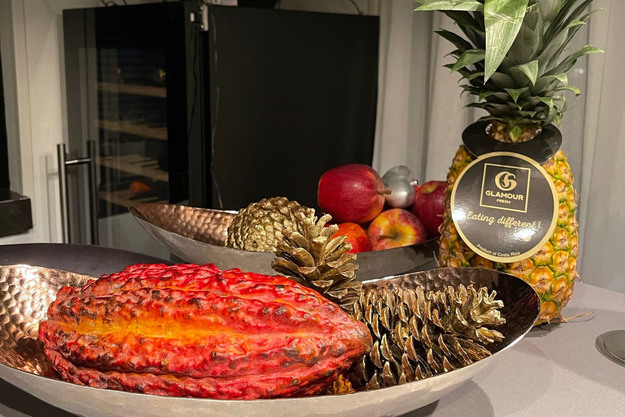
Those include red and yellow pitahaya, maracuja, and high-color pineapple and papaya. The key to that premium quality lies in the time of harvest, she points out. "For the best flavor, we pick the fruit only when it's completely ready to eat and ripe; there's no ripening process involved."
The downside of that ready-to-eat fruit is its increased fragility. "It's safer to pick fruit when it's green. With our ready-to-eat fruit, we focus mainly on flavor, but the fruit's more fragile, so we take more risk in the trade-off between shelf life and best quality," says Lilia.
High brix value
She cites Honey Passionata from Peru as an example. "This passion fruit is very sweet. Their high brix value makes passion fruits fragile, so they can only be transported as air cargo. They wouldn't survive a boat trip." That is why packaging enjoys so much attention, and Lilia reveals that they, for instance, use a special film to protect the fruit from sunlight and rain.
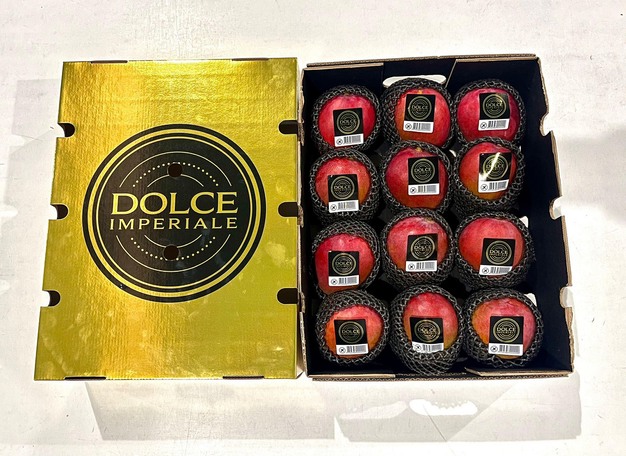
Peruvian mangoes - a major Glamour Fresh product category - are also flown in, and Lilia does not skimp on transport. "The fruit is ripe, so it must get here quickly. We often use direct flights that arrive at their destination within a day. So, consumers get flavorful, vitamin-rich fruit. Air cargo mangoes are incomparable to other mangoes," she says.
Incomparable
That flavor is why a regular group of people prefer flown-in Peruvian mangoes despite costing more. "Air cargo is expensive, but you really cannot compare eating a Peruvian flown-in mango to, say, a Brazilian, picked green and ripened later, mango brought in by boat. It's pricey, but it's a choice. Some consumers would rather buy one Peruvian air cargo mango than five Brazilian shipped mangoes. You pay more, but you're sure to get good quality, and that makes all the difference."
That price, says Trutnyeva, is why the Dutch market for flown-in mangoes remains limited. "With our exclusive range, we focus a lot on France, Spain, and Italy. But Eastern Europe, say, Russia or Ukraine, and Dubai, Saudi Arabia, and the United States are also in the picture. Around Christmas, Dutch consumers like having nice products, too,” she explains.
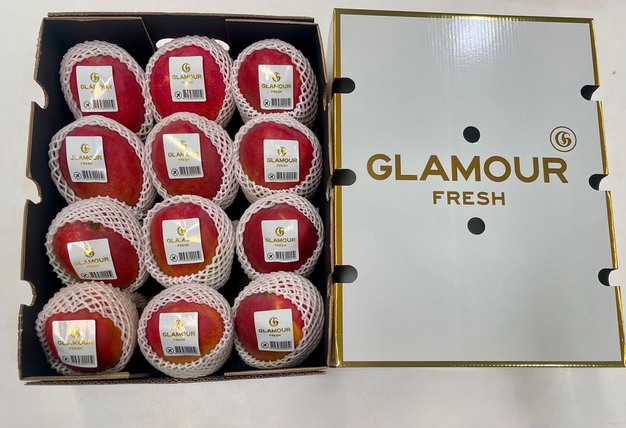
But countries like France or Spain focus on premium quality year-round." The festive season creates a noticeably higher demand for exotics, especially exclusive, unique products that people can use to decorate a festive plate. "They're particularly used for decoration, to make a dish look nice and welcoming," Lilia continues.
Strict selection
Glamour Fresh sources many of its exotics in Peru, where the weather affects cultivation. "The weather conditions have a definite impact. Growers are, for example, harvesting 38% fewer mangoes, and there are plenty of rejects, quality-wise. We, however, ensure our customers notice nothing of that."
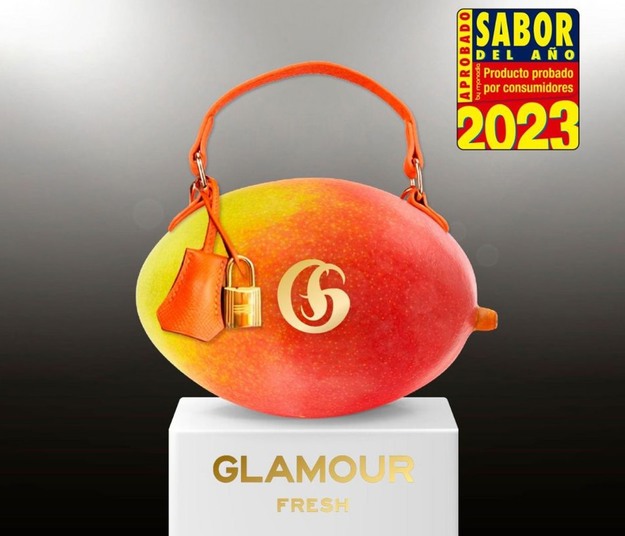
It means fruit selection is even stricter. "To be able to guarantee quality from the season's first to last day, you sometimes have to be brutally selective,” Lilia explains. The brand stands for perfect fruit. Of course, it's a living product, but we can guarantee that 99% of the time." Besides closely monitoring the growing process, that includes scanning the fruit to assess its internal quality. "The fruit is thoroughly checked before being packaged as Glamour Fresh," she concludes.
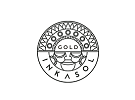 Lilia Trutnyeva
Lilia Trutnyeva
Inkasol Gold
+31 683506291
[email protected]










